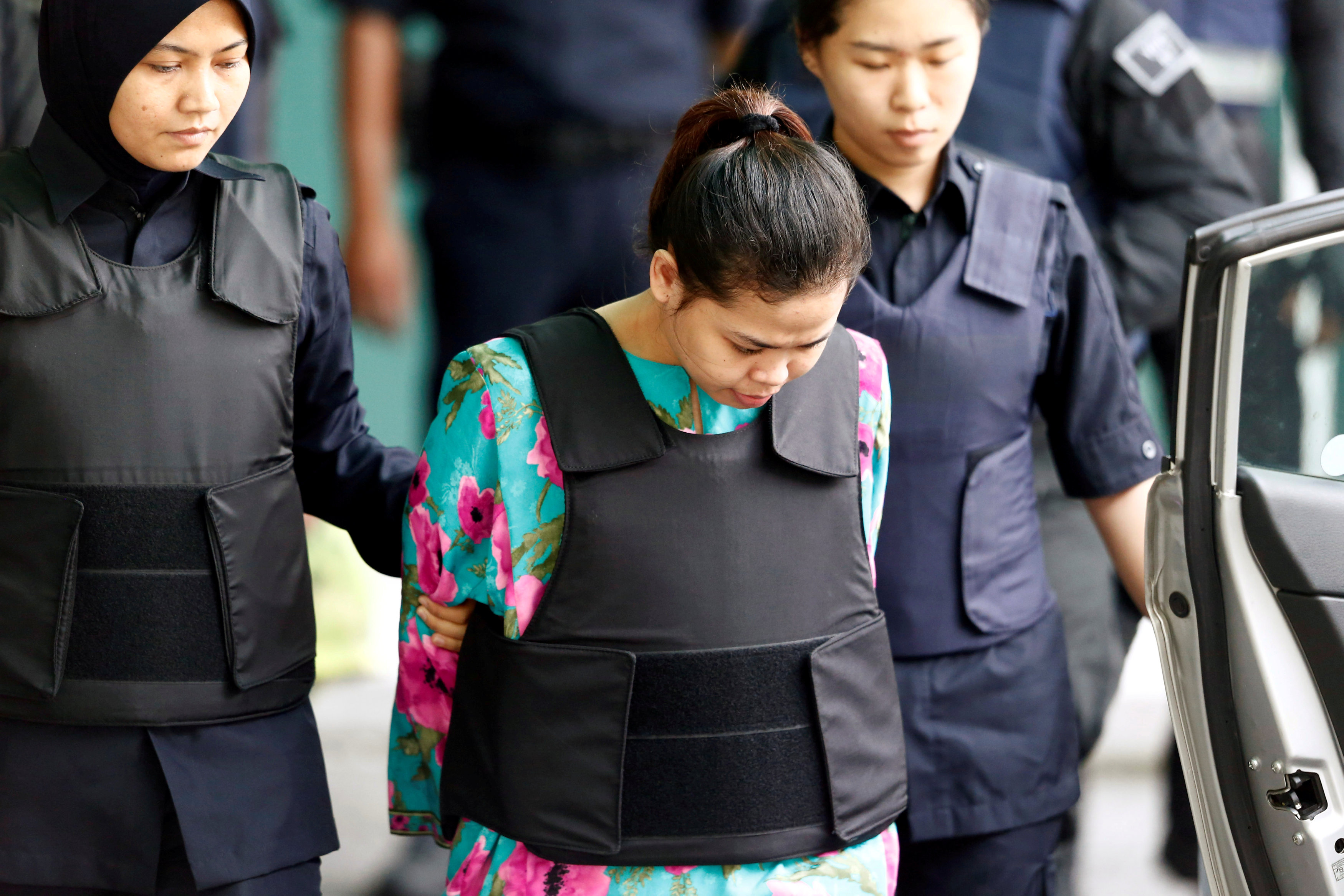
By Christine Kim and Ben Blanchard
SEOUL/BEIJING (Reuters) – Seoul and Beijing on Tuesday agreed to move beyond a year-long stand-off over the deployment of a U.S. anti-missile system in South Korea, a dispute that has been devastating to South Korean businesses that rely on Chinese consumers.
The unexpected detente comes just days before U.S. President Donald Trump begins a trip to Asia, where the North Korean nuclear crisis will take center stage, and helped propel South Korean stocks to a record high.
The installation of the U.S. Terminal High Altitude Area Defense (THAAD) system had angered China, with South Korea’s tourism, cosmetics and entertainment industries bearing the brunt of a Chinese backlash, although Beijing has never specifically linked that to the THAAD deployment.
Beijing worries the THAAD system’s powerful radar can penetrate into Chinese territory.
“Both sides shared the view that the strengthening of exchange and cooperation between Korea and China serves their common interests and agreed to expeditiously bring exchange and cooperation in all areas back on a normal development track,” South Korea’s foreign ministry said in a statement.
Before the THAAD dispute, bilateral relations flourished, despite Beijing’s historic alliance with North Korea and Seoul’s close ties with Washington, which includes hosting 28,500 U.S. troops. China is South Korea’s biggest trading partner.
“At this critical moment all stakeholders should be working together to address the North Korea nuclear challenge instead of creating problems for others,” said Wang Dong, associate professor of international studies at China’s Peking University.
“This sends a very positive signal that Beijing and Seoul are determined to improve their relations.”
As part of the agreement, South Korean President Moon Jae-in will meet Chinese President Xi Jinping on the sidelines of the summit of Asia-Pacific Economic Cooperation (APEC) countries in Vietnam on Nov. 10-11.
South Korea recognized China’s concerns over THAAD and made it clear the deployment was not aimed at any third country and did not harm China’s strategic security interests, China’s foreign ministry said.
China reiterated its opposition to the deployment of THAAD, but noted South Korea’s position and hoped South Korea could appropriately handle the issue, it added.
“China’s position on the THAAD issue is clear, consistent and has not changed,” Chinese Foreign Ministry spokeswoman Hua Chunying told a daily briefing in Beijing.
RETAIL RELIEF
The thaw is a big relief for South Korean tourism and retail firms as well as K-pop stars and makers of films and soap operas, which had found themselves unofficially unwelcome in China over the past year.
In South Korea, a halving of inbound Chinese tourists in the first nine months of the year cost the economy $6.5 billion in lost revenue based on the average spending of Chinese visitors in 2016, data from the Korea Tourism Organization shows.
The spat knocked about 0.4 percentage points off this year’s expected economic growth, according to the Bank of Korea, which now forecasts an expansion of 3 percent.
The sprawling Lotte Group, which provided the land where the THAAD battery was installed and is a major operator of hotels and duty free stores, has been hardest hit. It faces a costly overhaul and is expected to sell its Chinese hypermarket stores for a fraction of what it invested.
A spokesman for holding company Lotte Corp expressed hope that South Korean firms’ activity in China would improve following the announcement.
An official at Seoul’s presidential Blue House, who declined to be named given the sensitivity of the matter, said improvements for South Korean companies would come slowly.
Shares in South Korean tourism and retail companies rallied nonetheless, with Asiana Airlines gaining 3.6 percent and Lotte Shopping up 7.14 percent. The benchmark Kospi index hit a record for a third straight day, gaining 0.9 percent.
China has grown increasingly angry with North Korea’s ongoing pursuit of nuclear weapons and ballistic missiles in defiance of United Nations sanctions, even as it chafes at U.S. pressure to rein in its isolated ally.
NORTH KOREA TENSIONS
The recent deterioration in ties between China and North Korea may have contributed to Tuesday’s agreement, the Blue House official said.
Pyongyang has undertaken an unprecedented missile testing program in recent months, as well as its biggest nuclear test yet in early September, as it seeks to develop a powerful nuclear weapon capable of reaching the United States.
The head of NATO on Tuesday urged all United Nations members to fully and transparently implement sanctions against North Korea.
“North Korea’s ballistic and nuclear tests are an affront to the United Nations Security Council,” NATO Secretary General Jens Stoltenberg said in Tokyo, where he met Japanese Prime Minister Shinzo Abe.
Separately, a South Korean lawmaker said North Korea probably stole South Korean warship blueprints after hacking into a local shipbuilder’s database last April.
Expectations had been growing for a warming in the frosty bilateral ties following this month’s conclave of China’s Communist Party, during which Xi cemented his status as China’s most powerful leader after Mao Zedong.
Earlier this month, South Korea and China agreed to renew a $56 billion currency swap agreement, while Chinese airlines are reportedly planning to restore flight routes to South Korea that had been cut during the spat.
Tuesday’s agreement came after high-level talks led by Nam Gwan-pyo, deputy director of national security of the Blue House, and Kong Xuanyou, assistant foreign minister of China and the country’s special envoy for North Korea-related matters.
(Reporting by Christine Kim and Hyonhee Shin in SEOUL and Ben Blanchard in BEIJING, with additional reporting by Dahee Kim and Joyce Lee; Writing by Tony Munroe; Editing by Lincoln Feast and Ian Geoghegan)













